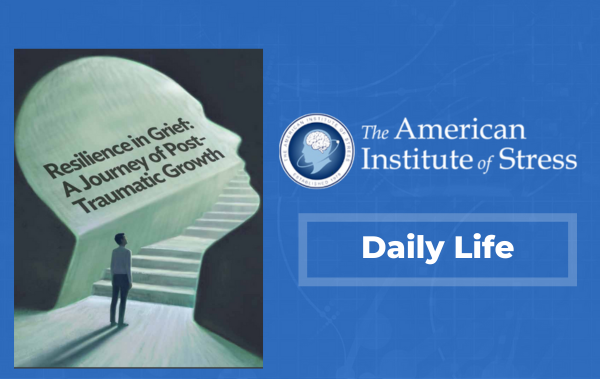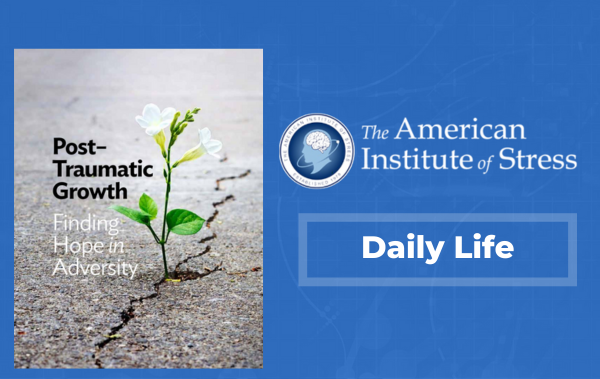 As politicians debate whether or not to extend federal aid to millions of out-of-work Americans, school districts are debating if there will be a traditional school year. This means parents working at home will once more have the added distraction of supervising and teaching their kids, possibly throughout 2021. Add to that the stress and anxiety about saving for retirement, job security and health complications all related to the pandemic, and you’re left with millions of Americans feeling burned out.
As politicians debate whether or not to extend federal aid to millions of out-of-work Americans, school districts are debating if there will be a traditional school year. This means parents working at home will once more have the added distraction of supervising and teaching their kids, possibly throughout 2021. Add to that the stress and anxiety about saving for retirement, job security and health complications all related to the pandemic, and you’re left with millions of Americans feeling burned out.
The World Health Organization recently updated its definition of burnout from a stress syndrome to “a syndrome conceptualized as resulting from chronic workplace stress that has not been successfully managed.” It is characterized by three symptoms: feelings of energy depletion or exhaustion; increased mental distance from one’s job or negative feelings toward one’s career; and reduced professional efficacy.
According to neuroscience expert Dr. Patrick Porter, founder of BrainTap Technologies, mental clarity is crucial for productivity. “Increased stress and anxiety surrounding Covid-19 have understandably caused work productivity to plummet because your emotional state is directly connected to your ability to focus.”
Porter says stress, anxiety and fear elevate cortisol levels in the brain, which interfere with memory, making it impossible to concentrate on your work. Not only is this bad for employees who are stressed out and scrambling to make ends meet with growing to-do lists, he says, it is also bad for businesses, as the decrease in productivity significantly impacts a company’s bottom line.
People at all levels of business are grappling with this issue, and they desperately need positive strategies to beat distraction, reduce stress and increase mental clarity, says Porter.
Yet according to a survey from the Pew Research Center, psychological distress resulting from the pandemic varies across different demographics. Women, young people and those whose jobs or incomes have been cut are more likely to fall into a high-stress category.
Until the pandemic subsides, here are a few useful ways to deal with burnout.
1. Exercise
It is no secret that exercise can relieve stress. Physical activity helps your brain produce more endorphins — the feel-good neurotransmitters associated with runner’s high. According to the Mayo Clinic, exercise can lower the symptoms associated with mild anxiety. It can also improve your sleep and ease your stress levels.
But if you’re not an avid exerciser, you want to avoid overdoing it; otherwise, you could get discouraged. Brief aerobic exercise, like walking, can help you stay focused and solve problems more efficiently.
2. Get more sleep

This might sound obvious, but it wouldn’t be if everyone got enough sleep. Deep sleep is restorative; researchers believe that during sleep, cerebrospinal fluid flushes out toxic wastes, thus “cleaning” the brain. The National Foundation for Sleep recommends that adults clock between seven and nine hours of sleep a night.
It is also important to limit the amount of screen time before turning in. Scientists recommend that you stop using your devices at least 30 minutes before bed. Setting an alarm to remind you to start winding down can be an effective way to get more sleep.
3. Unplug

The very technology that is connecting us right now may also be doing us harm. “Doomscrolling,” the tendency to scroll through internet pages despite discouraging news, has become a coronavirus buzzword.
It’s unrealistic to completely get rid of screens, but there are health benefits to reducing screen time, like improved mood, more time to try new activities and improved physical health. Schedule time each day to put down your phone or computer and shut off the television. Try reading a book, meditation or using your phone to actually call someone. If you can safely meet someone in person, even better.
4. Give back
Stop expecting satisfaction from your job. Burnout affects passionate start-up founders just as much as it affects dissatisfied cogs. For a lot of people, a job is nothing more than an exchange of labor for capital. If you’re no longer satisfied by your work, try volunteering or giving back.
Covid-19 may have complicated matters, but there are ways to volunteer online. Starting a new hobby is also a good way to fill the void left by your job. Investing time in your family and friends can also be rewarding and fulfilling.
5. Find moments of joy

It might sound silly, but finding small moments of joy throughout the day is uplifting. It could be as simple as watching a songbird outside your window.
Ingrid Fetell Lee, author of “Joyful: The Surprising Power of Ordinary Things to Create Extraordinary Happiness,” believes that human beings are capable of designing their own happiness from the outside in. In a recent interview with Quartz, she claimed that “positive emotions tend to make you more open-minded, which ultimately helps you think more creatively and productively.”
By AJ Horch





